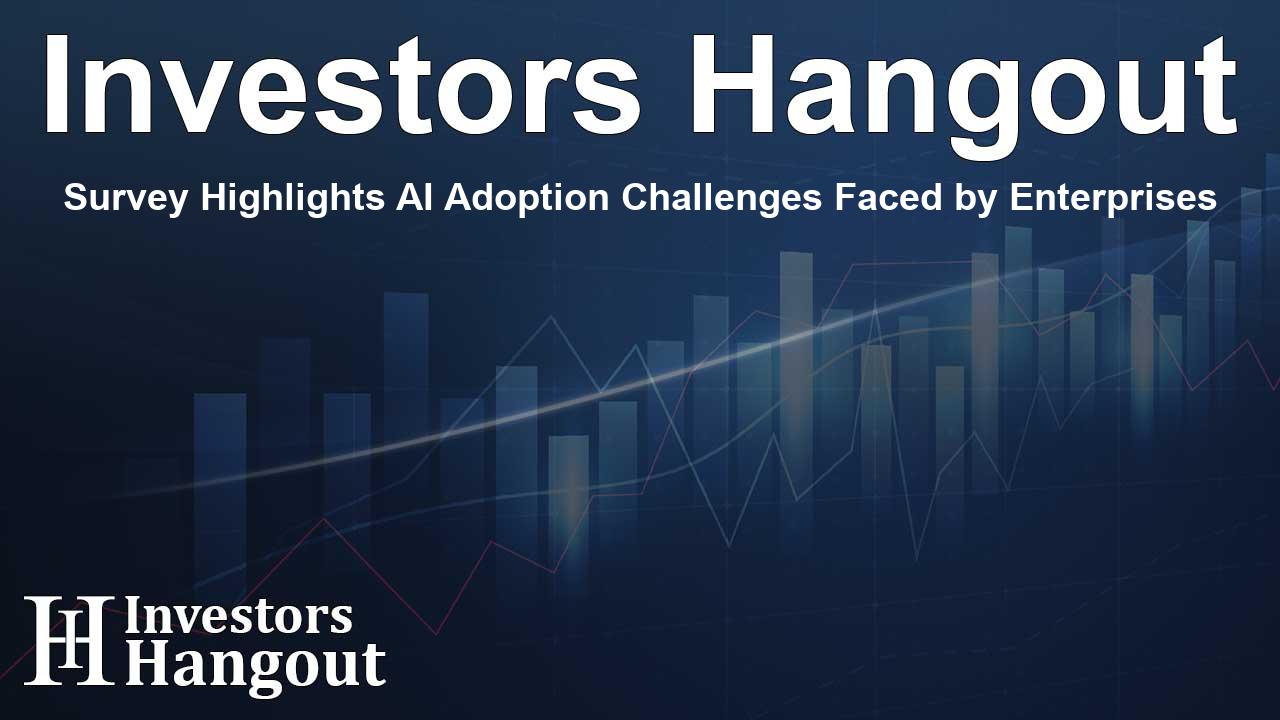Survey Highlights AI Adoption Challenges Faced by Enterprises

Survey Reveals Adoption Gaps in GenAI by Enterprises
NEW YORK-- Presidio, a leading technology services and digital solutions provider, has launched its latest findings regarding artificial intelligence (AI) implementation through the 2024 AI Readiness Report: Greatest Risks and Ways to Avoid Them. This extensive study surveyed over 1,000 CIOs, CTOs, and IT decision-makers across various industries, highlighting a pressing issue: while 80% of organizations have adopted GenAI, half of them launched their initiatives prematurely.
The Importance of Preparedness in AI Adoption
Rob Kim, Chief Technology Officer at Presidio, emphasized the momentum surrounding AI while also noting that organizations might not be fully cognizant of the complexities involved. "CIOs are enthusiastic about leveraging AI, yet they confront significant challenges, particularly related to data quality, security, and operational integration," Kim explained. Moving swiftly without establishing the necessary infrastructure and skill sets can lead to unforeseen difficulties.
Key Concerns Among IT Leaders
Investment in AI has risen to the forefront of organizational priorities, with 96% of IT leaders identifying it as a crucial contributor to competitive advantage. Notably, 71% of these leaders regard AI as the primary area of their investment. However, when it comes to integrating AI effectively, 90% of CIOs express concerns about operational obstacles. Leading barriers include data-related issues and cybersecurity, especially prevalent within the financial services and healthcare sectors.
Additional Findings from the Report
This comprehensive report also outlines several other critical findings that highlight the current landscape of AI adoption:
Data-Related Barriers
Over 86% of the surveyed IT leaders reported significant data challenges hindering their AI initiatives. They highlighted the difficulty in deriving meaningful insights and ensuring real-time access to data. Among organizations already utilizing GenAI, 84% experienced complications linked to their data sources.
Cybersecurity Concerns
Cybersecurity has emerged as a predominant concern, with 69% of CIOs employing AI to enhance their security programs. Nevertheless, many remain apprehensive about the risks associated with AI, voicing substantial concerns over data exposure, regulatory compliance, and the potential for unauthorized AI tool usage among employees. Specifically, 37% of respondents cited data privacy and security as their main worry regarding AI adoption.
Sector-Specific Limitations
The report also highlights significant discrepancies in GenAI adoption and readiness across various sectors. While a remarkable 85% of IT leaders in the private sector have embraced GenAI, only 38% of respondents from the public sector have followed suit, showcasing a call for increased readiness and awareness.
Strategies for Successful AI Implementation
The pressing need for organizations to implement AI correctly is becoming increasingly clear, as exploration into AI's potential also reveals substantial implementation costs. Understanding AI risks and pitfalls is essential for companies aiming to maximize the benefits. Rob Kim emphasizes the critical nature of robust governance policies. By focusing on internal guardrails parallel to innovation efforts—beginning with smaller proof-of-concept projects—organizations can set realistic stakeholder expectations regarding outcomes and return on investment (ROI).
Furthermore, as organizations advance in AI adoption, the demand for education in this area intensifies. Each survey participant expressed an eagerness to deepen their understanding of AI, suggesting a shift towards comprehensive training and resources. Partnerships with technology firms that can bridge knowledge gaps will become increasingly vital for successful AI integration.
Frequently Asked Questions
What does the report by Presidio reveal about GenAI adoption?
The report indicates that while many companies have adopted GenAI, a significant portion started their initiatives without adequate preparation, highlighting gaps in readiness.
What are the main concerns of IT leaders regarding AI?
IT leaders express concerns related to data quality, security, and operational integration as key challenges in successfully implementing AI technologies.
How critical is cybersecurity in AI adoption?
Cybersecurity is paramount, with many CIOs leveraging AI for improved security measures while remaining cautious of potential risks associated with AI usage.
Is there a difference in AI adoption between sectors?
Yes, the report illustrates that private sector leaders show significantly higher readiness and adoption rates compared to those in the public sector.
What steps can organizations take to enhance AI implementation success?
Organizations should focus on creating robust governance structures, starting with small-scale AI projects, setting realistic stakeholder expectations, and ensuring proper education and training.
About The Author
Contact Caleb Price privately here. Or send an email with ATTN: Caleb Price as the subject to contact@investorshangout.com.
About Investors Hangout
Investors Hangout is a leading online stock forum for financial discussion and learning, offering a wide range of free tools and resources. It draws in traders of all levels, who exchange market knowledge, investigate trading tactics, and keep an eye on industry developments in real time. Featuring financial articles, stock message boards, quotes, charts, company profiles, and live news updates. Through cooperative learning and a wealth of informational resources, it helps users from novices creating their first portfolios to experts honing their techniques. Join Investors Hangout today: https://investorshangout.com/
The content of this article is based on factual, publicly available information and does not represent legal, financial, or investment advice. Investors Hangout does not offer financial advice, and the author is not a licensed financial advisor. Consult a qualified advisor before making any financial or investment decisions based on this article. This article should not be considered advice to purchase, sell, or hold any securities or other investments. If any of the material provided here is inaccurate, please contact us for corrections.
